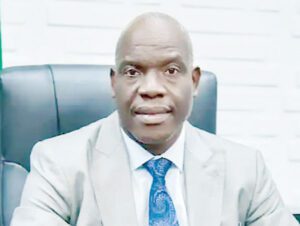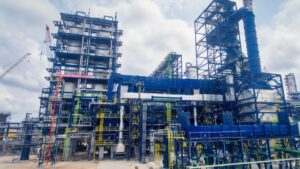
Nigeria-Siemens power project: FG targets 25,000mw by 2025
The Federal Government is set to unveil and deploy the first set of power equipment procured under the Presidential Power Initiative, popularly known as Nigeria-Siemens power project, with projections to exceed 25,000 megawatts(mw) by 2025.
Speaking in Lagos yesterday, the Chief Executive Officer, Federal Government of Nigeria Power Company (FGNPC), Mr. Kenny Anuwe, also disclosed that the inauguration of equipment would begin in the next two or three weeks.
Anuwe, while speaking to journalists at the on-going Nigeria Energy Exhibition and Conference, said the company would ramp up electricity supply to 7000 mw by 2024 as promised Nigerians and exceed 25,000 mw by 2025.
He said the first inauguration ceremony would begin at a location in Lagos, while the second set of equipment would be unveiled in Abuja.
Anuwe said the latest milestone showed the determined effort of the government to improve the supply of electricity to Nigerians.
“We will be seeing commissioning of these projects in the next two to three weeks, and every month after that until the end of the programme,” Anuwe said.
He stated that the equipment, which included transformers and mobile substations, were procured under the IPP in partnership with Siemens Energy, the implementing partner.
Anuwe said the equipment were purpose-designed to meet Nigeria’s power supply needs in a phased programme that would see to the generation and distribution of 25,000 megawatts (mw) of electricity by 2025.
He added that the company was set to commence the unveiling of the first set of the power equipment that had already arrived the country, stressing that the aim is to sustain the tempo until power disruptions in the country becomes a thing of the past.
Anuwe stated optimistically that with the new equipment, power supply would rise to a minimum of 7,000 megawatts, and assured that the company was committed to executing its plans until all the targets set towards ending power disruptions in the country were met.
According to him, “The Federal Government is determined to make a difference in the lives and livelihood of Nigerians, and with the pace of work being put in the project so far, I think we would exceed 7,000mw. This is our first objective, and we are not taking our eyes off that ball. We want to hit that target and exceed it, and that is a confirmation that improvement in electricity supply is absolutely doable.”
He maintained that FGNPC adopted a transparent and sustainable model that would deliver on the objectives of the project across the electricity supply value chain, a procedure he believed would win the trust and support of Nigerians.
Admitting that the energy needs of a country of Nigeria’s size and capacity exceeded 7,000mw, he said the set threshold was a minimum target that would continually be improved upon until the average Nigerian had access to electricity supply without recourse to the more expensive and environmentally hazardous alternatives.
Anuwe explained that FGNPC was established by the Federal Government as a special purpose vehicle for the implementation of the PPI, in an effort to make the task of ramping up electricity supply easier.
He stated, “The FGN Power Company was set up as a special purpose company to implement the PPI. But its core mandate is in three broad categories. Number one is to secure financing for the programme; number two, to engage with stakeholders right across the value chain, and number three, to coordinate the implementation of the Presidential Power Initiative.
“It also includes engagement in Engineering and Procurement Contracts (EPC) and Master Content Management (MCM), all fashioned to deliver for Nigerians, all the objectives set in the PPI.”
On the role of the generating companies (Gencos) and distribution companies (Discos) under the new order, Anuwe explained that the establishment of FGNPC did not impact the role of the players in the electricity value chain since the arrangement took the form of a partnership than role absorption.
He said, “The Gencos and the Discos will continue to play their part in the value chain of delivering energy to consumers right across Nigeria.
“What will be different is that they will now have a partner in FGN Power Company that is enabled to actually implement a programme that supports their businesses in sustainable ways, while strengthening their capabilities to deliver value to their customers.”
The FGNPC boss praised the partnership between Nigeria and FGNPC on the one hand, and the German government and Siemens Energy, on the other, explaining that the relationship will bear long term benefits to Nigeria and its people.
Anuwe described the German firm as a world leader in equipment manufacturing, who are playing the role of a partner, while also providing support in financing and other technical aspects of the project.
Beyond their role as original equipment manufacturers (OEMs), he said Siemens was also in the project as implementation partners supporting Nigeria by enabling financing.



